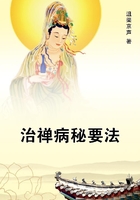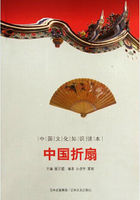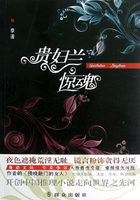ESGRIGNON (Marie-Armande-Claire d'), born about 1775; sister of Marquis Carol d'Esgrignon and aunt of Victurnien d'Esgrignon to whom she had been as a mother, with an absolute tenderness. In his old age her father had married for a second time, and to the young daughter of a tax collector, ennobled by Louis XIV. She was born of this union which was looked upon as a horrible /mesalliance/, and although the marquis loved her dearly he regarded her as an alien. He made her weep for joy, one day, by saying solemnly: "You are an Esgrignon, my sister." Emile Blondet, reared at Alencon, had known and loved her in his childhood, and often later he praised her beauty and good qualities. On account of her devotion to her nephew she refused M. de la Roche-Guyon and the Chevalier de Valois, also M. du Bousquier. She gave the fullest proof of her genuinely maternal affection for Victurnien, when the latter committed the crime at Paris, which would have placed him on the prisoner's bench of the Court of Assizes, but for the clever work of Chesnel. She outlived her brother, given over "to her religion and her over-thrown beliefs." About the middle of Louis Philippe's reign Blondet, who had come to Alencon to obtain his marriage license, was again moved on the contemplation of that noble face. [Jealousies of a Country Town.]
ESPARD (Charles-Maurice-Marie-Andoche, Comte de Negrepelisse, Marquis d'), born about 1789; by name a Negrepelisse, of an old Southern family which acquired by a marriage, time of Henry IV., the lands and titles of the family of Espard, of Bearn, which was allied also with the Albret house. The device of the d'Espards was: "Des partem leonis." The Negrepelisses were militant Catholics, ruined at the time of the Church wars, and afterwards considerably enriched by the despoiling of a family of Protestant merchants, the Jeanrenauds whose head had been hanged after the revocation of the Edict of Nantes. This property, so badly acquired, became wondrously profitable to the Negrepelisses-d'Espards. Thanks to his fortune, the grandfather of the marquis was enabled to wed a Navarreins-Lansac, an extremely wealthy heiress; her father was of the younger branch of the Grandlieus. In 1812 the Marquis d'Espard married Mlle. de Blamont-Chauvry, then sixteen years of age. He had two sons by her, but discord soon arose between the couple. Her silly extravagances forced the marquis to borrow. He left her in 1816, going with his two children to live on rue de la Montagne-Sainte-Genevieve. Here he devoted himself to the education of his boys and to the composition of a great work; "The Picturesque History of China," the profits of which, combined with the savings resultant from an austere manner of living, allowed him to pay in twelve years' time to the legatees of the suppliant Jeanrenauds eleven hundred thousand francs, representing the value--time of Louis XIV.--of the property confiscated from their ancestors. This book was written, so to speak, in collaboration with Abbe Crozier, and its financial results aided greatly in comforting the declining years of a ruined friend, M. de Nouvion. In 1828 Mme. d'Espard tried to have a guardian appointed for her husband by ridiculing the noble conduct of the marquis. But the defendant won his rights at court. [The Commission in Lunacy.] Lucien de Rubempre, who entertained Attorney-
General Granville with an account of this suit, probably was instrumental in causing the judgment to favor M. d'Espard. Thus he drew upon himself the hatred of the marquise. [Scenes from a Courtesan's Life.]
ESPARD (Camille, Vicomte d'), second son of Marquis d'Espard; born in 1815; pursued his studies at the college of Henri IV., in company with his elder brother, the Comte Clement de Negrepelisse. He studied rhetoric in 1828. [The Commission in Lunacy.]
ESPARD (Chevalier d'), brother of Marquis d'Espard, whom he wished to see interdicted, in order that he might be made curator. His face was thin as a knife-blade, and he was frigid and severe. Judge Popinot said he reminded him somewhat of Cain. He was one of the deepest personages to be found in the Marquise d'Espard's drawing-room, and was the political half of that woman. [The Commission in Lunacy.
Scenes from a Courtesan's Life. The Secrets of a Princess.]
ESPARD (Jeanne-Clementine-Athenais de Blamont-Chauvry, Marquise d'), born in 1795; wife of Marquis d'Espard; of one of the most illustrious houses of Faubourg Saint-Germain. Deserted by her husband in 1816, she was at the age of twenty-two mistress of herself and of her fortune, an income of twenty-six thousand francs. At first she lived in seclusion; then in 1820 she appeared at court, gave some receptions at her own home, and did not long delay about becoming a society woman.
Cold, vain and coquettish she knew neither love nor hatred; her indifference for all that did not directly concern her was profound.
She never showed emotion. She had certain scientific formulas for preserving her beauty. She never wrote but spoke instead, believing that two words from a woman were sufficient to kill three men. More than once she made epigrams to peers or deputies which the courts of Europe treasured. In 1828 she still passed with the men for youthful.















